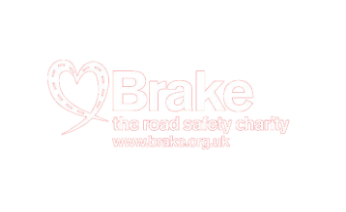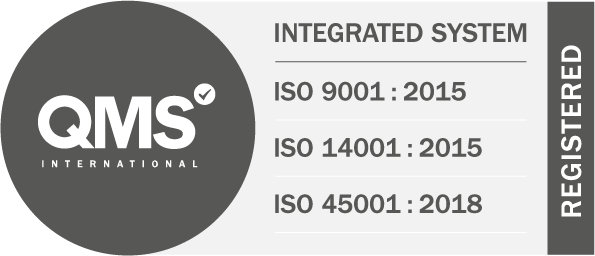A.D.V.I.C.E - Topic 11
Coeliac Disease
What is Coeliac Disease
The official definition of Coeliac Disease from the NHS and Coeliac UK is:
Coeliac disease is a serious illness where the body’s immune system attacks its own tissues when you eat gluten. This causes damage to the lining of the gut and means the body can’t properly absorb nutrients from food.
Coeliac disease is not an allergy or food intolerance, it is an autoimmune disease caused by a reaction of the immune system to gluten – a protein found in wheat, barley and rye.
Research has found that people with the condition have genes which mean they may develop coeliac disease, but we don’t yet know why. It is important to understand that people with untreated coeliac disease will most likely be experiencing problems from additional ailments which can be caused by a lack of crucial nutrients your body needs to keep you healthy.
Coeliac disease is common and affects one in a 100 people, meaning hundreds of thousands in the UK have coeliac disease. But there are half a million who don’t know it and may still be struggling with unexplained symptoms.
If a first-degree family member (such as mother, father, sister or brother) has the condition then the chances of having it increase to one in 10.
Could you be one of them?
Here is a story from a 24-year-old female who after years of suffering from the age of 12 was finally diagnosed with the disease in 2015:
"I was diagnosed being coeliac in 2015 after experiencing extreme fatigue, which at the time I knew wasn’t right for being a young and healthy teenager. Following a referral from the GP, further investigations had begun at which point my blood levels were displaying an abnormality in my TTG levels (t-Transglutaminase).
I was referred for a biopsy for coeliac diagnosis. Since the diagnosis, I have had to alter my diet to be gluten free which was a big challenge. I gave myself a target to become gluten free on a set date prior to a group session discussing what can and can’t be included within the new diet. To anybody who is coeliac, it is worthwhile visiting a dietician as some of the foods that I thought were gluten free, were in-fact not, such as, sausages, meatballs and burgers. Although they are meat products, they are filled out with wheat which goes against a coeliac diet.
At the very beginning of my diagnosis, gluten free product variety was limited however as the years have progressed and the awareness of the disease has increased, there is a wider selection of gluten free alternatives to the commonly known brands.
Even though I have a greater understanding of what coeliac does to my body, I can’t not be vigilant in my surroundings, for example sharing of any cutlery or sharing grocery items such as butter. If a family member or a work colleague before me has used a piece of cutlery and spread the butter on wheat bread, and then gone back to the butter for more, traces of gluten are then contaminating the product which will then trigger my symptoms. I didn’t think that being diagnosed with this condition it would go as far as being so meticulous.
Mentally, it is challenging enough to keep to the strict diet especially because all I knew up to 2015 was eating what I loved and then ultimately from that year I had to do a U-turn. Fatigue can be particularly challenging, even when following a strict diet, there are days where I could feel like falling asleep and have no energy at all.
This makes daily life a little harder and my work life balance can be affected by the disease."
Coeliac Disease in Children
- Coeliac disease affects one in 100 children in the UK.
- Most children are undiagnosed and don’t get diagnosed until later in life.
- Symptoms include diarrhoea, constipation and or other gut symptoms, growth or change in growth pattern, irritability and a bloated tummy.
- In undiagnosed, untreated coeliac disease there is a greater risk of complications including impaired weight gain and growth problems, delayed puberty, iron deficiency anaemia, chronic fatigue and osteoporosis.
- A gluten free diet should only be given once a child is formally diagnosed with coeliac disease by a healthcare professional.
- The first step in diagnosis is to discuss your concerns with your child’s GP or you can take an online assessment by visiting (isitcoeliacdisease.org.uk)
You can print these results and take these to a doctor to help with your conversation.
Mental Health
A wide range of psychological problems can arise for those with untreated coeliac disease. Initially there may be misdiagnosis of psychiatric illness due to some of the neurological and psychiatric symptoms that can be seen if untreated. Once diagnosed, there may be difficulty adjusting to a new diagnosis of chronic illness and adherence to a gluten free diet. In patients with coeliac disease, a 10-22% increased risk of neurological disorders is reported.
The most common are:
- Mood changes
- Anxiety
- Fatigue
- Difficulties with concentration and attention
- Decreased appetite
For further information on Coeliac Disease, access the following links:
Online assessment Home | Coeliac UK (isitcoeliacdisease.org.uk) or call 0333 332 2033
General information Home - Coeliac UK
Mental Health Mental Health | Celiac Disease Foundation
Treatment Coeliac disease - Treatment - NHS (www.nhs.uk)
Share to:
Find out more
Find out how Reflex Vehicle Hire can help your company.
Call 0330 460 9913 or visit our contact us page.








@2x.png)

